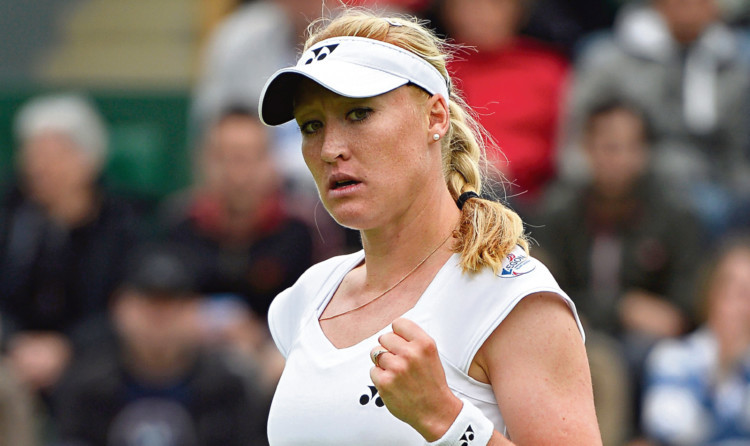
‘I’m fighting with everything I have’
Tennis ace Elena Baltacha’s liver cancer could be linked to the 1986 Chernobyl nuclear disaster, a leading expert has claimed.
The sportswoman, who was born in Ukraine but counts herself Scottish after growing up in Perth, announced on Friday she was suffering from the potentially fatal disease.
The 30-year-old’s career had been dogged by health complaints including a long-running liver problem which forced her to retire last year.
A cancer specialist has insisted it may have been the former British No.1’s childhood in the shadows of Chernobyl that left a lasting legacy on her health.
Professor Karol Sikora, an oncologist who also advises the Ukrainian government, said: “It is possible there is a relationship between the radiation from Chernobyl and Elena’s cancer.
“Exposure to radiation increases the risk of the malignancies.
“She has said she has an auto-immune liver condition, sclerosing cholangitis.
“This, along with the increased exposure to radiation, may have caused liver cancer to develop.”
The tennis star, who represented Team GB at the 2012 Olympics, was born in Kiev in 1983 where her dad starred as a footballer Dynamo Kiev.
Just three years later, Chernobyl’s nuclear reactor went into meltdown.
Experts have attributed up to 10,000 extra cancer cases in the Ukraine and surrounding countries of Russia and Belarus to the disaster.
The Baltacha family left Ukraine in 1989 when dad Sergei won a move to the UK. They never went back and, after her dad joined
St Johnstone, the family settled in Perth.
Gail Macdonald, of the Chernobyl Children’s Lifeline charity, said: “Kids who grew up in the aftermath of the Chernobyl disaster have a high risk of childhood cancer and autoimmune disorders.
“It may well have caused Elena’s cancer and exposure to the fall-out has affected many.
“We are told by the health authorities in Ukraine that many children develop cancer, autoimmune diseases and birth defects.”
Liver cancer is one of the toughest to beat as only 20% of its victims live for a year after diagnosis.
Survival drops significantly with time as only 5% are still alive five years later.
On Friday distraught Elena said: “I’m undergoing treatment and fighting this illness with everything I have.”
Judy Murray, a friend, said: “Obviously this is a tough time for Bally but she is a such a determined, upbeat person and everyone around her is staying positive as well.
“I know she’ll be really grateful for all the support that she’s getting.”
Baltacha lives in Ipswich, the home of her dad’s first UK club, where she runs a tennis school with husband and former coach, Nino Severino.

Enjoy the convenience of having The Sunday Post delivered as a digital ePaper straight to your smartphone, tablet or computer.
Subscribe for only £5.49 a month and enjoy all the benefits of the printed paper as a digital replica.
Subscribe